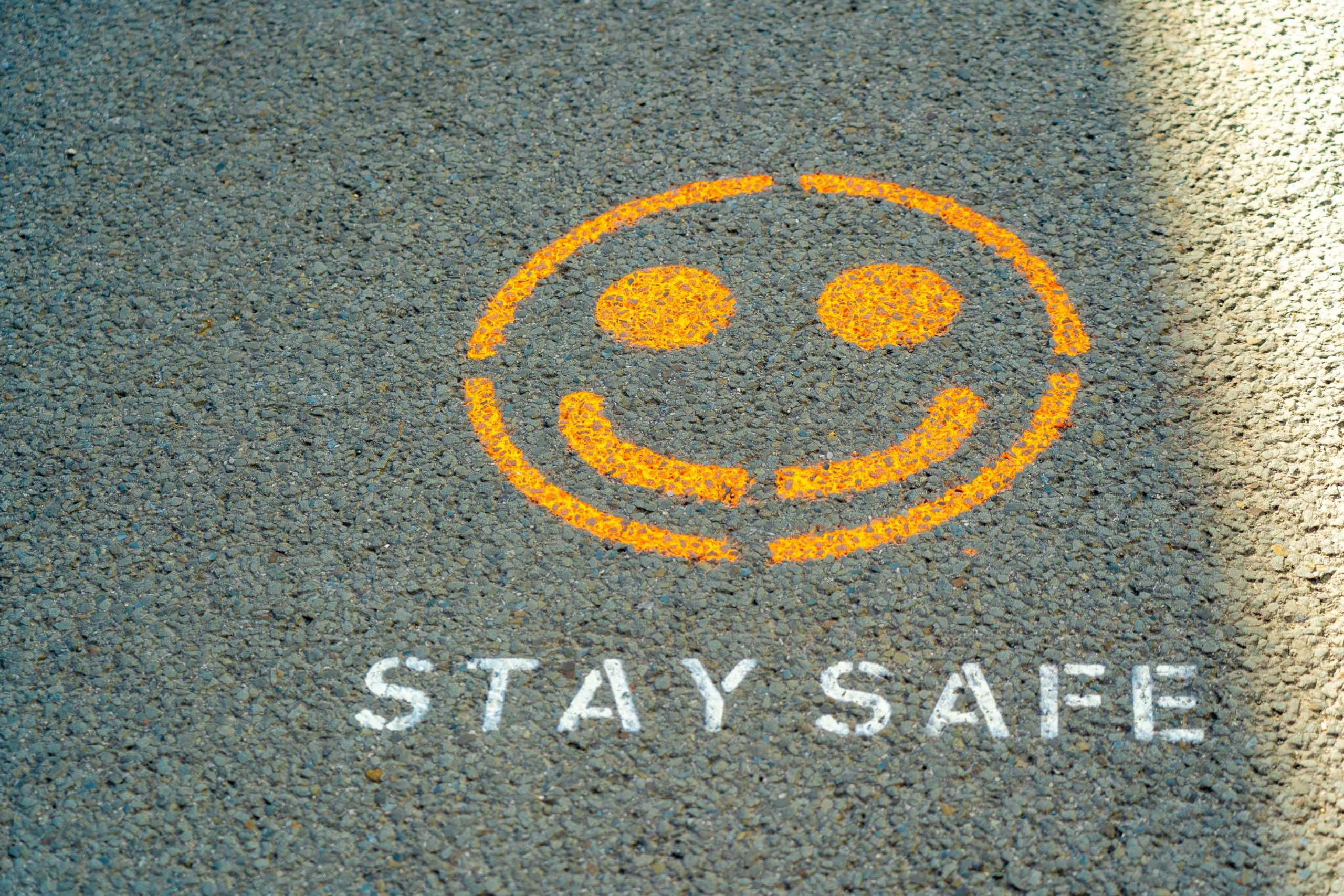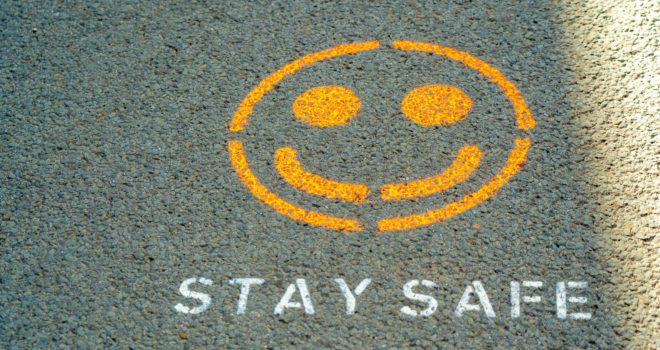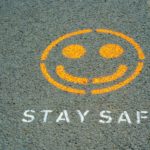The New Abnormal: A Review
How do we move ahead in a post-pandemic era? And what are the lessons to be learned from our challenging recent history? Catholic psychiatrist and bioethicist Aaron Kheriaty has thought a great deal about these questions and his answers are found in his just-released book The New Abnormal: The Rise of the Biomedical Security State […]



How do we move ahead in a post-pandemic era? And what are the lessons to be learned from our challenging recent history? Catholic psychiatrist and bioethicist Aaron Kheriaty has thought a great deal about these questions and his answers are found in his just-released book The New Abnormal: The Rise of the Biomedical Security State (Regnery Publishing, 2022). The result is a brilliant mix of scientific observations, personal experiences, philosophical reflections, prudent policy prescriptions, and even a few speculative hints about dystopian possibilities of the near future.
Kheriaty, who lost his previous job as clinical psychiatrist and teacher at UC-Irvine in a dispute over mandated vaccines and natural immunity, begins the book in an unexpected time and place: 1947 Nuremberg. He does this to provide historical context for threats to freedom in our time. He briefly surveys the eugenics movement and its appropriation by the Nazi regime. Germany’s medical professionals were well-trained and as good as any in the world, but they lost their way. “Instead of seeing the sick as individuals in need of compassionate medical care, German doctors became willing agents of a sociopolitical program driven by a cold utilitarian ethos,” writes Kheriaty (xvii). After the war the revulsion at the perversion of medicine led to the Nuremberg Code, which emphasized informed consent as a cornerstone of ethical medical treatment.
That code and other ethical agreements remained as part of the medical-bioethical landscape…until 2020. Kheriaty asserts that “[d]uring the covid pandemic, the public health and medical establishment once again abandoned the principle of free and informed consent to advance a supposed greater good” (xxi). Having laid the groundwork for his argument and narrative, he sums up by issuing this frightening declaration: “The unholy alliance of (1) public health, (2) digital technologies of surveillance and control, and (3) the police powers of the state—what I call the Biomedical Security State—has arrived” (xxii). While this probably seems like a heavy meal to digest, the reader can be assured that Kheriaty writes clearly and is grounded in scientific medicine and a solid ethical worldview. His story, while alarming, is neither conspiracy theory nor exercise in despair.
After the Nuremberg prologue, Dr. Kheriaty continues with four long chapters and an epilogue: “Locked Up: The Biomedical Security State”; “Locked Down & Locked Out: A New Societal Paradigm”; “Locked In: The Coming Technocratic Dystopia”; “Reclaiming Freedom: Human Flourishing in a More Rooted Future”; and, “Seattle, 2030.” Sprinkled throughout what could be a gloomy read, we encounter stories of solidarity and resilience. The author makes sure to show us that human interaction cannot—must not—be stymied by government interference in our lives and the functioning of society. “Consider the human goods we sacrificed to preserve bare biological life at all costs: friendships, holidays with family, work, visiting the sick and dying, worshipping God, and burying the dead” (14). But to resist or even question, we must know as much of a situation’s history as possible. Kheriaty lays out the pieces of the puzzle: states of emergency, agency capture of regulators by the regulated, loosening bonds of social cohesion, and the religion of scientism.
Scientism is distinct from science and scientific inquiry, Kheriaty points out. “The characteristic feature of science is warranted uncertainty, which leads to intellectual humility. The characteristic feature of scientism is unwarranted certainty, which leads to intellectual hubris” (54). In other words, scientism upholds so-called science as the only proper form of knowledge and rejects any questioning or skepticism. It is prone to misuse as a political tool and typically accompanies a materialistic worldview. That heavy-handed framework clashes with how science and medicine have long operated through trial and error, experimentation, imaginative solutions, and, most of all, respect for individual humans as made in the image and likeness of God.
Kheriaty’s own story makes for a fascinating sub-plot. As a doctor, ethicist, and teacher he was closely involved with figuring out how to respond to covid and help patients. As the lockdowns unfolded he encountered staggering amounts of fear, worry, and depression. His grasp of bioethics and knowledge of history led him to speak out against new methods of trying to control spread of the covid virus, especially when they superseded societal freedom and individual liberty. “Freedom of movement, of association, of domicile in one’s country of origin, and access to public spaces and public events—these quickly went from basic rights to special privileges conferred by governments as rewards for good behavior” (68). His medical training also led him to critique the development and imposition of a new and mostly untested vaccine. In his own case, he fought against a mandatory vaccination because of a prior covid infection. His argument at the time did not prevent him from being fired. He also touches on the devastating impact of restrictions on work and supply chains.
Indeed, that is one of the constant themes of this book: technology and safety should never eclipse the humanity of our lives. For instance, “[t]here is clearly no such thing as a medication—or a vaccine—that’s always good for everyone in every circumstance all the time” (137). Technology and cultural immersion endanger our sense of ourselves and nudge us to trade autonomy and dignity for convenience. “Today, routine biometric verification for things from mobile phones to lunch lines gets young people used to the idea that their bodies are tools used in transactions” (155). Connected to abuse of genetic and biometric data is the ominous specter of transhumanism, which Kheriaty characterizes as “clearly a religion—a particular type of neo-Gnostic religion” (167). To all these dehumanizing trends the author counsels resistance, but emphatically “nonviolent resistance and civil disobedience” (184).
The book’s final chapter lays out policy proposals for steering clear of dystopia. I found this chapter to be only somewhat persuasive. Kheriaty’s suggestions are certainly prudent and logical; however, they mostly deal with changing the political and medical climate. But bureaucracy and institutional entropy are like the invasive Japanese Knotweed in my back yard, which is to say impossible to eradicate. On other points Kheriaty is spot-on. “The first and most necessary step is to overcome our fear,” he writes (191). And [t]he enemy is not pain or illness. The enemy is fear. The enemy is hatred or indifference toward our fellow human beings” (192). Fear of death was manifest during the pandemic. As Catholics, we are taught to not fear death, but rather to spend our lives preparing for it and to live in a state of grace. During a pandemic or even “normal” times we can bear witness to Christ by living with courage and fighting fear. We can also resist mask mandates that dehumanize us and separate us from others, covering up our God-created uniqueness. Of importance to religious believers, we can engage with our faith authorities to make sure no one is abandoned again because “too many religious leaders and clergy unfortunately showed themselves during the pandemic to be willing chaplains to the new technocracy” (204).
Readers should not skip the epilogue, in which Kheriaty (a native of the Pacific Northwest) posits a dystopian Seattle in 2030. In this uncomfortable scenario, we are asked to consider what life might be like if current trends in pharmaceuticals and their marketing are joined with further developments in social control to create a two-tiered society reminiscent of many well-known alternative futures in literature and movies. Thankfully, Dr. Kheriaty lightens a somber story with some wry humor.
While The New Abnormal is not an explicitly Catholic book, Aaron Kheriaty founds it in Catholic principles of justice, humanity, clear philosophical first principles, subsidiarity, solidarity, and important spiritual goods. He brings in examples from classical and contemporary philosophy, C.S. Lewis, and George Orwell. The prose is clear but some of the concepts can be a little heady at times. This is a valuable piece of work from a man with unique qualifications. His is a prophetic voice calling us to understand and take action while never forgetting the God Who made us.
✠
Photo by Nick Fewings on Unsplash














